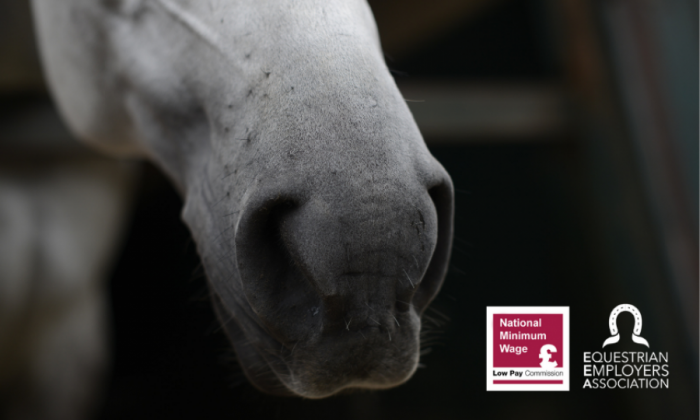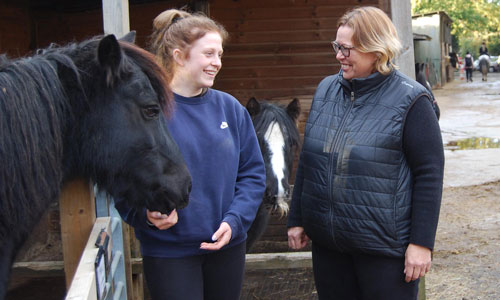- Join Us
- Login
- EEA ToolKit
- Employment Essentials
- Frequently asked
- Contracts and wages
- Time off work & absence
- Staff management & training
- Workplace disputes
- Dismissals and resignations
- Pregnancy and children
- Avoiding discrimination
- Redundancy and Retirement
- Other responsibilities
- Legal Helpline
- Recruitment
- Good Recruitment
- New starters
- Find a groom
- Good Employment
- Resources
- Downloads Library
- EEA Pension & Payroll
- Safe workplace
- Employers Minds
- Transporting horses
- Riding Establishment Licences
- Member discounts
- Business Hub
- Equestrian businesses
- The business plan
- Business compliance
- My clients
- Livery Contract Creator
- Financial matters
- Business challenges
- Marketing
- The EEA
- Employers Life
- Contact

Low Pay Commission Consultation survey results
5th July 2022
A recent survey conducted by the Equestrian Employers Association (EEA) to gather evidence for the Low Pay Commission’s consultation into National Minimum Wage (NMW) rates has identified challenging times ahead for the equestrian industry.
The survey’s aim was to gain the views of employers in the equestrian industry on the impact of current and proposed rises in the National Minimum Wage (NMW) and National Living Wage (NLW) rates.
Read the full results here.
The on-course rate for the National Living Wage (NLW) in April 2024 is £10.95. 65% of equestrian employers have said that this is too high.
When asked their view on the further lowering of the NLW threshold to those aged 21 and above, over half responded to say that their business would not be able to sustain this.
Employers in the equestrian industry must forward plan and take action if their businesses are to remain viable over the next two years.”
Taking the proposed rise to £10.95 per hour over a 50-hour week, this is an annual salary of £28,470, a rise of £3,770 (gross pay) per year for those being paid the NLW, compared with the current rate of £9.50.
Some employers commented that the rise in the NLW will make it difficult to recruit those aged 23 and over and they would need to employ only younger people as a result. Is the equestrian industry therefore at risk of age discrimination due to employers not being able to afford the wage bill?
Staffing crisis
The ability to recruit skilled staff in the equestrian industry is problematic, with an alarming 93% of employers saying that this was the case. A quarter has said that this is due to low pay, and over a third say this is due to the employees not liking the lack of flexibility in working hours.
In addition, low pay and lack of flexibility are contributing to poor staff retention rates with nearly half of employers seeing employees leaving due to these reasons.
With employers concerned that they can only employ younger people should the rise in the NMW and NLW rates go ahead, and there already being an existing problem in the recruitment and retention of staff, there is a real risk of the industry entering a staffing crisis in the near future.
With other higher-paying sectors offering more flexibility in their working patterns, and due to a high percentage of females working in the equestrian industry, the sector could lose some of its most experienced employees to these issues.
The cost-of-living crisis is having a huge impact too, with three-quarters of employers reporting having to increase prices to clients during the last 12 months. With the proposed further rise in NMW and NLW wage rates, it’s highly likely that employers will continue this trajectory, something that horse owners and those participating in the sport will, unfortunately, have to embrace.
The impact of the cost-of-living crisis is also reflected in the current financial viability of businesses in the equestrian industry. During the last 12 months, 72% of employers have seen a fall in profits, with 60% reporting that they are unable to invest in their business.
| Is there an equestrian business crisis looming? This remains to be seen. There is certainly work to do to improve pay, and conditions, and make businesses viable again. |
NEWS ARCHIVE




















-Small.jpg)



-Small.jpg)

